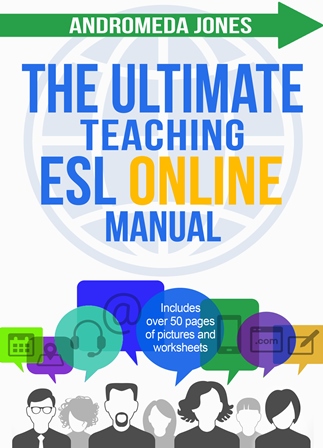An upper-intermediate B2 TEFL lesson plan for a class of 6-10 adult students. Grammar exercise from The Ultimate ESL Teaching Manual. Vocabulary from The Ultimate ESL Vocabulary Manual.
Class duration: 90 minutes
Learning objectives: Grammar: Even if vs. even though; vocabulary: Luck and probability
Notes: Students must know conditional tenses before undertaking class.
Example TEFL Lesson Plan: Even if vs. even though
| 10.00 | Warmer: Write question: “Are you superstitious and is there anything you do for good luck?” on the board and as students join the class ask them to discuss it pairs. |
| 10.10 | Grammar: Write: ‘Even though’ and ‘although’ on the board and elicit their meaning, i.e. They present a subordinate clause which is the opposite of what one would normally expect. Elicit some examples from the class, e.g. “Even though he hates the sight of blood, he is training to be a surgeon.” |
| 10.15 | Introduce ‘even if’ explain that it is used with a conditional tense (usually first or second) to express something hypothetical. Write structure with second conditional: Even if + past + would + infinitive and an example: e.g. “Even if I lived in Japan, I wouldn’t eat sushi.” Elicit more examples from students. |
| 10.25 | Even if vs. even though drill (see instructions below). |
| 10.35 | Vocabulary: Class brainstorm about words related to probability. Introduce: A stroke of luck, to bump into / run into someone, to come across something, fingers crossed, touch wood, break a leg. |
| 10.50 | Speaking practice: Returning to the superstition topic, students speak in pairs about a time when they have had a lucky coincidence. |
| 11.05 | Speaking practice: Students speak in pairs about the podcast they have listened to for homework. Small discussion at end. |
| 11.20 | Finisher game: A to Z of…. Pick a topic, for example ‘travel’ and go around the class asking people to name words related to it in alphabetical order. See how far you can get in the alphabet before the time runs out. |
HOW TO TEACH EVEN IF VS. EVEN THOUGH, DRILL INSTRUCTIONS
The teacher says a statement which may or may not be true. The student then answers. If it is true for them, then they use ‘even though’ and if it is not true, they use ‘even if’ + second conditional. For example:
Teacher: You have a cat.
Student: Even if I had a cat, I would prefer a dog (student does not have a cat).
Teacher: You live in Rome.
Student: Even though I live in Rome, I never visit the Colosseum (student lives in Rome).
Continue around the table until everyone has answered at least two questions.
STATEMENTS
- You live in Japan
- You are a vegetarian
- You have a dog
- You cycle to work / school
- You like soccer/ football
- You are a famous chef
- You work in tech
- You listen to Spotify
- You can time travel





